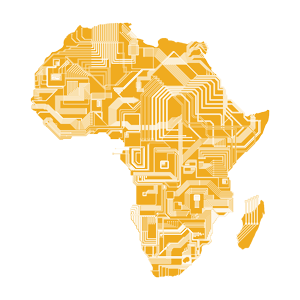Conference Theme
Africa: Connections and Disruptions

Africa has witnessed substantial continuities, and acute ruptures. The continent is home to unchanging processes that have prevailed for millennia, and other movements that are in a state of flux. Africa’s connections and disruptions are both enduring and novel. Moreover, the relative weight attached to each element, and the perceived relationship between them varies greatly depending on the positionality of the observer: from the colonial administrator, to the African farmer, to the entrepreneur, to the nurse, to the politician, to the preacher, to the civil servant, to the LGBTQ campaigner, to the aid worker.
A multiplicity of connections exist within, between, and beyond Africa. They can be fundamental or mundane, and shift in ways that are sudden and spectacular, or subtle and underwhelming. With connection comes a disruption; and with disruption comes a connection. Studying these connections and disruptions invites a new way of seeing time and space as socially constructed and never uncontested. It also raises many questions: who or what is brought together or driven apart? What forces are driving the process? Why do tipping points emerge at particular junctures? What are the intended and unintended consequences of these pivotal moments?
Connections and disruptions form and inform debates at the African local and at the global level: They are addressed in the decolonization of the academy, in the questions over who is connected to which conversations and who is denied.
- They are evident in understandings of development, in the interference and the progress of North-South interventions, and in the ‘new’ global partnership for aid architecture, the emergence of different donors, in new sources of finance and in new means of transaction within and between locations.
- The very idea of African boundaries as rigid state-defined constructs are being ruptured by new varieties of migration and mobilities across borders.• Fresh social connections are being fashioned that link societies in new ways, often within existing infrastructures that are still very uneven across the continent. Conversely, fractures can be found in the social, in how society is organised and stratified, between societies and within social groups, in relationships. Relatedness is reflected in inclusion, exclusion, and contestations over health interventions, peace and security, and wider issues of rights and justice.
- In the political realm, ruptures can be brought about in distinct events such as elections that usher in new administrations, but which can equally sustain enduring forms of governance and retain familiar personalities. Power connects and is connected. Power disrupts and is disrupted.
- Reconfigured risks as well as opportunities are brought about by Africa’s place in the global economy, through global value chains and consumer markets, and through new kinds of economic interaction between individuals, countries, regions, groups and continents. New connections and disruptions are emerging from existing patterns of livelihoods and social provisioning. New patterns of financialization and financial inclusion have generated new types of economic and debt relations between Africa and the rest of the world, between citizen and subject. Some Africans are rising, while others are falling.
- Connections and disruptions continuously highlight the ebbs and flows of African agency over the course of time. Order is unsettled and reconfigured, diffused and concentrated, by seen and unseen actors with known and unknown motivations. And the changes are witnessed, unnoticed or obscured in distinct events, specific struggles and social rearrangements – always with a historical context and often with some bearing on what is to come.
- Land disputes contest the past, for example, environmental crises deal with more than the present, and climate change – perhaps the ultimate disruption – considers more than Africa’s future.
- Cultural changes brought about by new ideas and experiences can both preserve and upset the traditional and the modern. Connections and disruptions are represented in language, in religion, performing arts and in literature, and in science and innovation. Information and communication technology has a hand in almost all these arenas. Africa connects, and is connected. Africa disrupts, and is disrupted.
The 8th European Conference on African Studies (ECAS 2019) invited panel proposals addressing the theme of Africa: Connections and Disruptions. It welcomed panels and papers representing all disciplines and methodological approaches of the Social Sciences and Humanities. First priority was given to proposals explicitly concerned with the conference theme, but the scientific committee did also consider panels on other topics.

 Site by NomadIT
Site by NomadIT 
